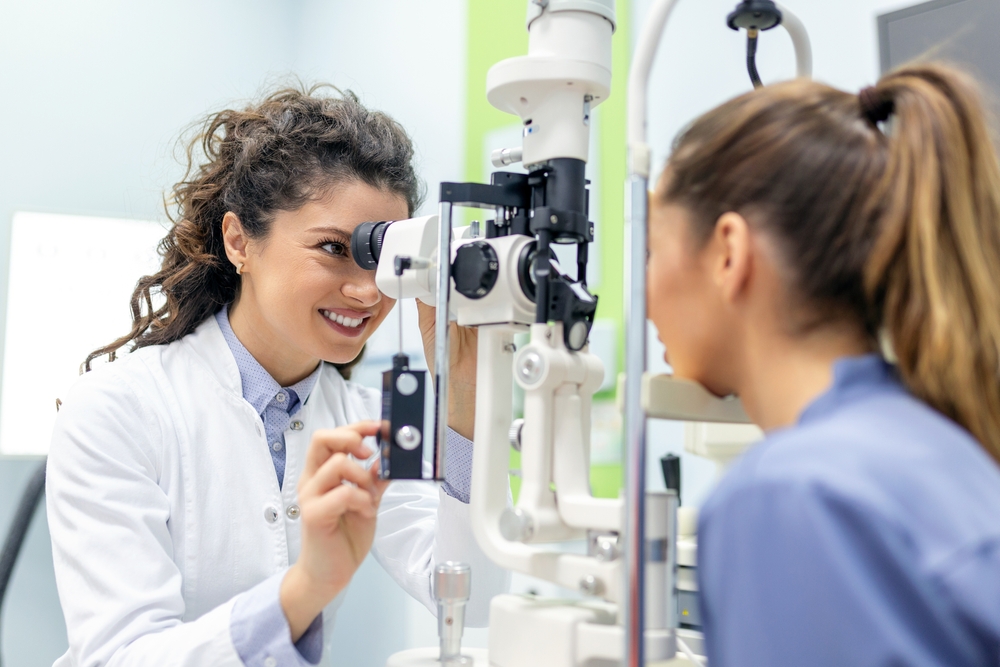
Frequent visits to your eye doctor are essential to keeping your eyes healthy. With the help of eye exams, your eye doctor can detect eye conditions early and provide prompt treatment to protect your vision and preserve your eye health.
Keep reading to learn more about how often you need to see your eye doctor.
How Often Should You Visit Your Eye Doctor?
The frequency at which you should visit your eye doctor to have your eyes examined will depend on several factors, including your age, pre-existing vision problems, and medical history. Generally, it is recommended to follow these guidelines:
Adults
If you have good eyesight and healthy eyes, you only need a comprehensive eye exam once in your 20s and twice in your 30s.
However, there are exceptions:
- If you wear prescription glasses or contacts, visit your eye doctor annually
- If you have a family history of eye conditions, you may need more frequent eye exams
- If you notice abrupt flashes of light or floaters, or have eye pain, an injury, or an infection, contact your eye doctor immediately
Otherwise, your next eye exam should be at age 40. That’s when early vision changes and signs of eye conditions typically start to appear.
Older Adults
After turning 65, you should get your eyes checked annually to screen for signs of age-related eye conditions. Routine eye examinations can help your eye doctor track any changes in your vision and eye health.
Your eye doctor will look for signs of age-related eye conditions such as cataracts, macular degeneration, diabetic retinopathy, and glaucoma.
You should follow the schedule your eye doctor recommends for future eye checkups to ensure optimal eye and vision health.
People with Risk Factors
Individuals with certain risk factors require more frequent eye examinations. You may need eye exams more often if you have a family history of eye conditions or high blood pressure.
Eye Exams for Diabetic Patients
Diabetes is a chronic condition that impairs the body’s ability to produce enough insulin or effectively use the insulin it makes, leading to high blood sugar or glucose. Too much sugar in the blood for a prolonged period can cause damage in various parts of the body, including the kidneys, heart, and the blood vessels in the eyes.
If you have diabetes, you’re at an increased risk of diabetic eye conditions. Several conditions can result from diabetes, including cataracts, macular edema, diabetic retinopathy, and glaucoma.
Many of these eye conditions can lead to permanent vision loss and blindness, especially if they’re not treated early. This is why it is important to schedule frequent eye exams with your eye doctor to monitor for any signs of these conditions.
When Should You Have Eye Exams if You Have Diabetes?
Often, symptoms of diabetic eye conditions don’t show up until the condition is advanced and has caused significant vision loss. That’s why seeing your eye doctor regularly is vital to your vision and health.
The longer you have diabetes, the more likely you are to develop diabetic retinopathy. The risk also increases if you have poor blood sugar control.
Maintaining good blood sugar control is important to avoid eye damage from diabetes. Regular eye exams are the most effective way to detect any damage caused by diabetes at the earliest stages.
Prompt detection allows for timely treatment, which can prevent severe vision loss and preserve your sight.
Are you due for an eye exam with your eye doctor? Schedule an appointment at VisionFirst Eye Center in Birmingham, AL, today!








